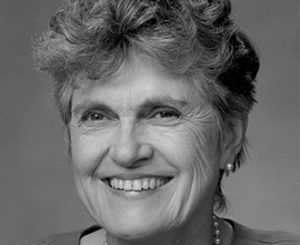One of the great joys of being an oral historian is getting to speak with many different people. We have the privilege of asking them about their lives and allowing them to put their experiences in the context of larger historical trends. We get this chance every year when we interview people for our “Class of ’31” series in university history, which is funded through a small endowment.
We have used the “Class of ‘31” series over the past four years to increase the representation of women interviewed because such a small percentage of Berkeley oral histories historically have been with women. So, in 2013, we interviewed Anthropology Professor Laura Nader. In 2014, we interviewed Pacific Film Archive Director Emeritus Edith Kramer. In 2015, we interviewed higher education scholar Patricia Pelfrey (her interview is forthcoming). And, most recently, we interviewed Psychology Professor Susan Ervin-Tripp as our 2016 honoree. Ervin-Tripp’s numerous nominations were among the strongest we’ve had. Her nominations conveyed a resounding eagerness to document her work in academics and equity, knowing that we could all benefit from learning about her efforts as a trailblazer.

Now, just as we celebrate the appointment of Berkeley’s first female Chancellor in the person of Carol Christ, we hope to expand our documentation of women’s contributions to UC Berkeley through a new initiative called “Women Leaders at Berkeley.” Although just in its infancy, this new initiative promises to highlight the work of the many female leaders on campus who have added much to their respective fields of study. In many cases, they have also helped advance equity on campus and in higher education more broadly. If you want to see more interviews like those with Nader and Kramer, Pelfrey and Ervin-Tripp, we encourage you to support the “Women Leaders at Berkeley” fund.
Check back with us in the coming months – and years – to see the progress that we hope to make in increasing the representation of UC Berkeley women in the Oral History Center collection and, by extension, in documenting the important, indeed pivotal, contributions women have made to make Berkeley what it is today.
Shanna Farrell, Interviewer